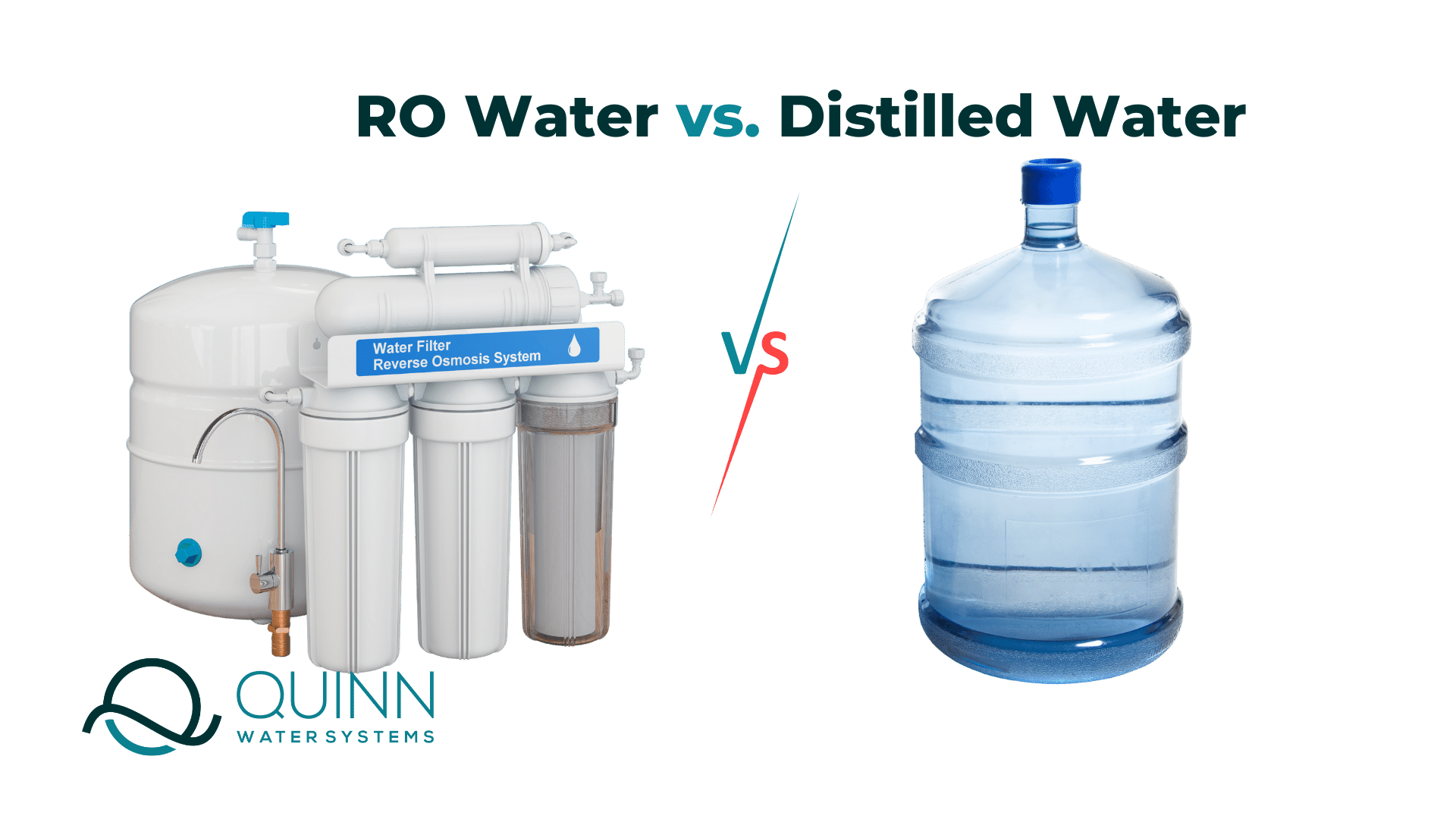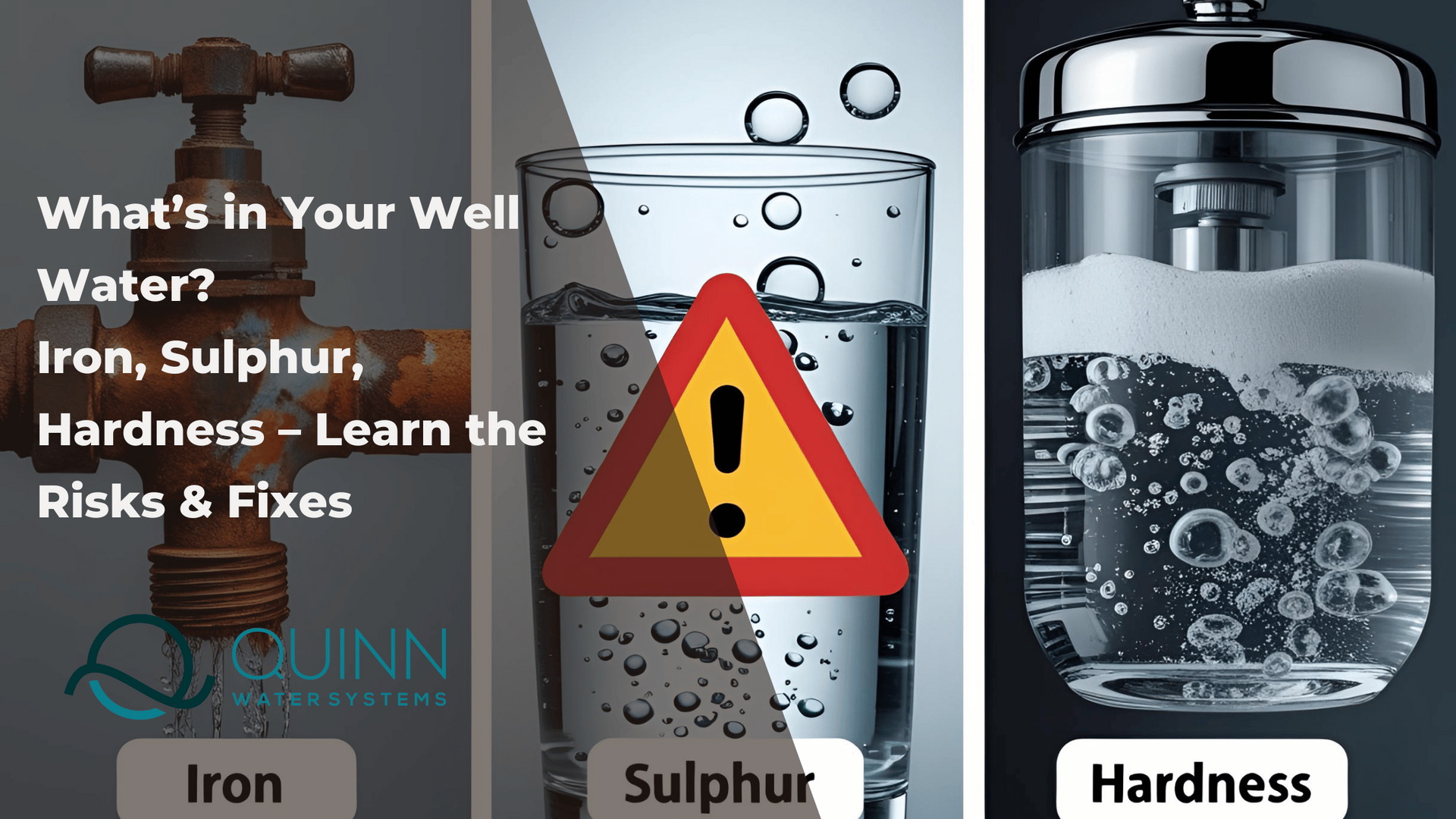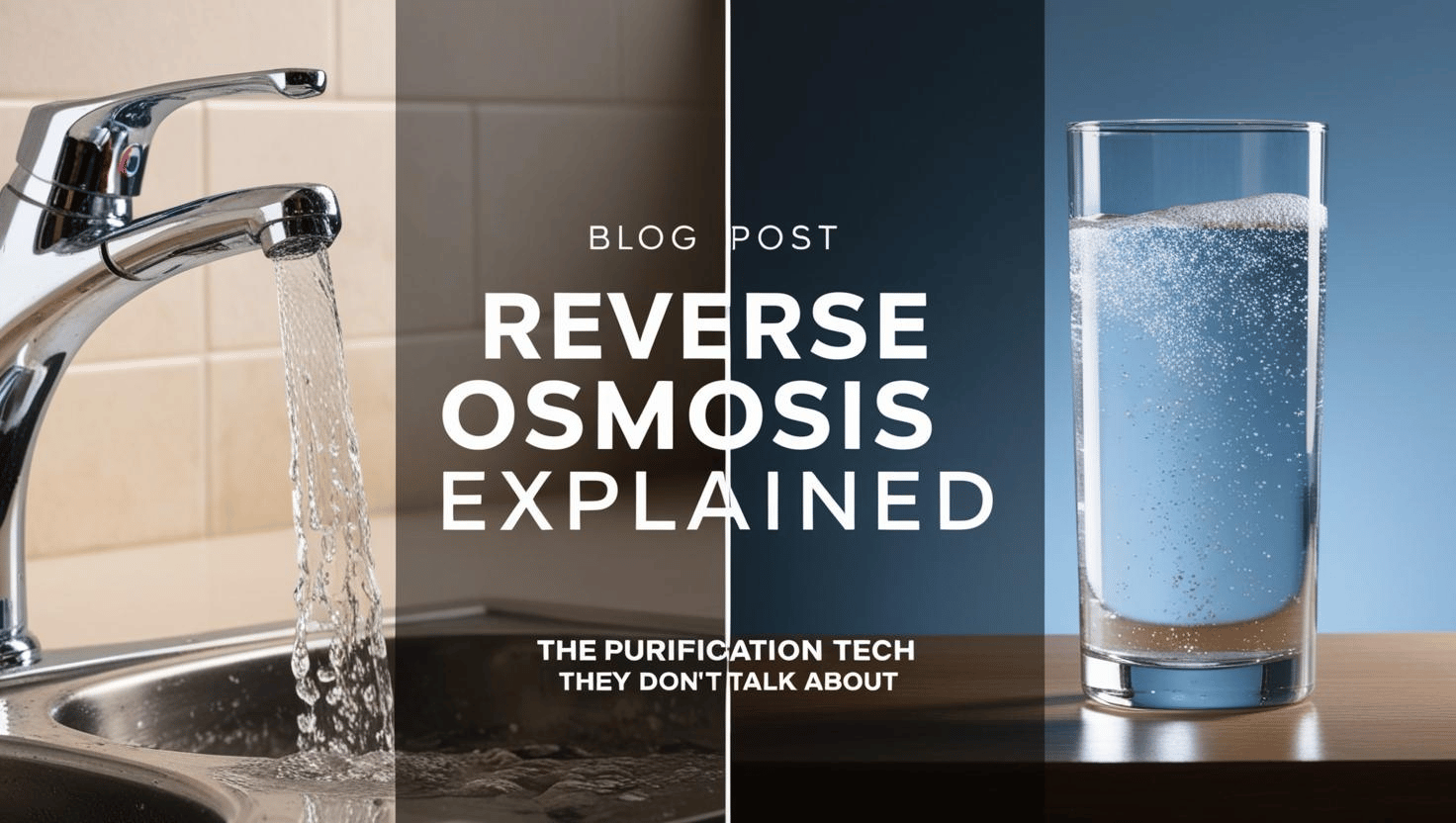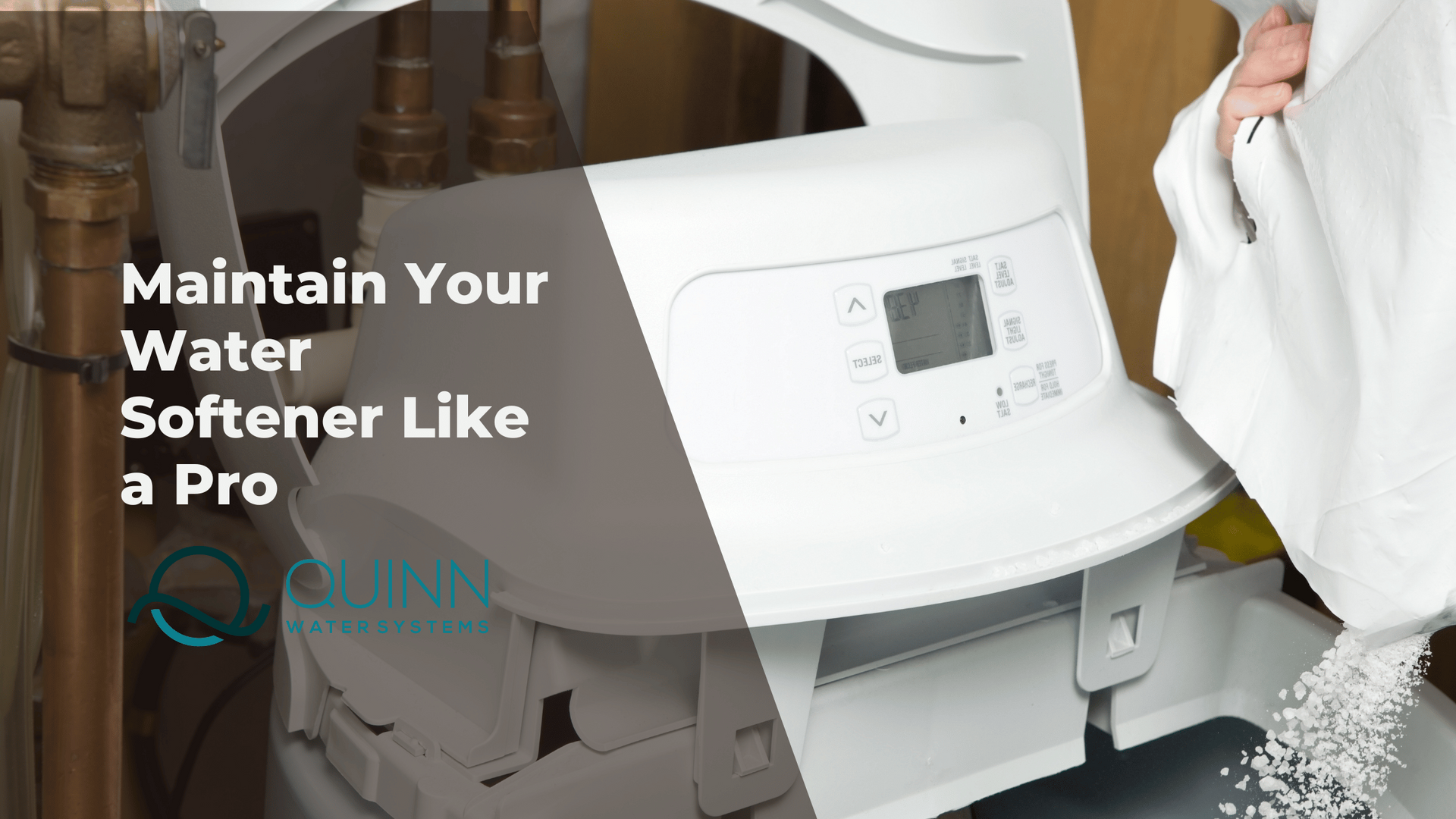RO Water vs. Distilled Water: Which is Better for You?
In the province of Ontario, ensuring access to clean and pure water is a top priority for every individual and business. Water purification methods like Reverse Osmosis (RO) and distillation play a crucial role in delivering high-quality water. Understanding the similarities and differences between RO water and distilled water can help us make informed decisions about the best water purification solution for our needs.
By the end of this article, you'll have a good grasp of which purified water option suits your needs best, ensuring you get to enjoy safe and refreshing water at home or your establishment. So, let's kick things off by taking a closer look at the unique features of RO water and distilled water.

How Reverse Osmosis (RO) and Distilled Water are similar:
Let's explore the basics of Reverse Osmosis (RO) and Distilled Water to see how they are similar in delivering purified water.
Reverse Osmosis:
RO water is purified through a specialized filtration system consisting of fine membranes. These membranes work diligently to remove contaminants and impurities from the water at a microscopic level. In addition to purification, the 6-stage RO systems also include a mineral filter that adds essential minerals back into the water, making it not only pure but also healthy and refreshing.
Distilled Water or Distillation:
Distilled water, on the other hand, is created using the process of distillation. Water is boiled, turning into steam, and leaving behind contaminants at the base of the distillation system. The steam is then condensed and cooled back into a liquid form. Further purification is achieved through carbon filtration, which ensures any remaining contaminants or chemicals are removed. This results in highly purified water with only a minimal amount of dissolved solids.
Both RO water and distilled water offer purified drinking water. However, for residential purposes, RO is the more practical choice.
Stay tuned as we delve deeper into the differences between RO water and distilled water, helping you make an informed decision about the best purified water option for your needs!
Is the Water We Receive Through Reverse Osmosis Also Distilled?
You might be curious whether the water obtained through Reverse Osmosis (RO) is also considered distilled or vice versa. Let's clear up this question!
The answer is 'No.' While both RO and distillation processes purify water by removing contaminants and impurities, they have some differences. Distillation may not be as effective as RO in eliminating volatile chemicals like chloramines. Additionally, distilled water is more of a short-term water purification solution, whereas reverse osmosis offers a long-term and highly effective method for obtaining purified water.
Next, we'll delve further into the advantages of choosing Reverse Osmosis water over distilled water, giving you a better understanding of which option suits your needs best. So, let's keep exploring!
RO Water over Distilled Water:
Now that we understand the basic differences between Reverse Osmosis (RO) and distilled water, let's explore why RO water might be the preferred choice.
Health Considerations:
- Essential Minerals: Water naturally contains essential minerals that are beneficial for our health. While RO water removes most impurities, it still retains some minerals. On the other hand, distilled water may have fewer minerals due to the distillation process.
- Impact on Mineral Intake: For individuals who rely heavily on water as a mineral source, RO water may be more desirable as it retains some beneficial minerals.
Read More: 5 Benefits of Drinking RO Water
Taste and Purity:
- Flavour Comparison: Many people prefer the taste of RO water over distilled water, as RO water tends to have a fresher and more natural taste.
- Purity Levels: Both RO and distilled water are highly purified. However, some argue that RO water may have a slight advantage in purity due to its ability to remove certain contaminants more effectively.
Environmental Impact:
- Eco-Friendliness: In terms of eco-friendliness, RO systems are considered more environmentally responsible compared to distillation methods. RO requires less energy and generates less waste.
- Water Wastage and Energy Consumption: Distillation tends to consume more energy and may produce a higher amount of wastewater compared to RO systems.
Frequently Asked Questions:
Let's address some common inquiries related to RO and distilled water:
Is RO water safe to drink?
Absolutely! RO water is considered safe for drinking. The reverse osmosis process effectively removes contaminants, impurities, and harmful substances, ensuring the water is clean and suitable for consumption.
Do reverse osmosis systems need electricity?
No, RO systems do not require electricity to function. They rely on water pressure to operate efficiently, making them energy-efficient and cost-effective.
How do I know which water is suitable for my specific needs?
Understanding your specific water requirements and preferences is essential. Consider factors like taste, mineral content, water usage and potential uses to determine which water type aligns best with your needs. Testing your water might be the first step.
Do Reverse Osmosis systems remove water hardness?
RO systems are not specifically designed to remove water hardness. However, you can add a water softener as a form of pre-filtration to address high water hardness levels. This helps preserve the life of your reverse osmosis system and ensures better water quality.
Do Reverse Osmosis systems remove Chlorine?
Yes, reverse osmosis systems effectively remove chlorine from water. The carbon pre filter in an RO system is responsible for removing chlorine before water reaches the RO membrane. For whole home use, it's recommended to go with a Carbon Filtration for Chlorine Removal at every tap.
Conclusion:
In conclusion, when it comes to choosing the best water purification method, RO water stands out for its retention of essential minerals, refreshing taste, and efficient removal of contaminants like chlorine. Quinn Water Systems is your number one-stop-shop for water filtration and purification in the GTA. With their top-quality RO water systems and exceptional customer service, you can trust Quinn Water Systems team to provide you with clean, safe, and great-tasting water for your home or business.
Make the smart choice and enjoy the benefits of pure water with Quinn Water Systems in the Greater Toronto Area.
Better hydration and a healthier life awaits!
Share this blog
Blog Posts








